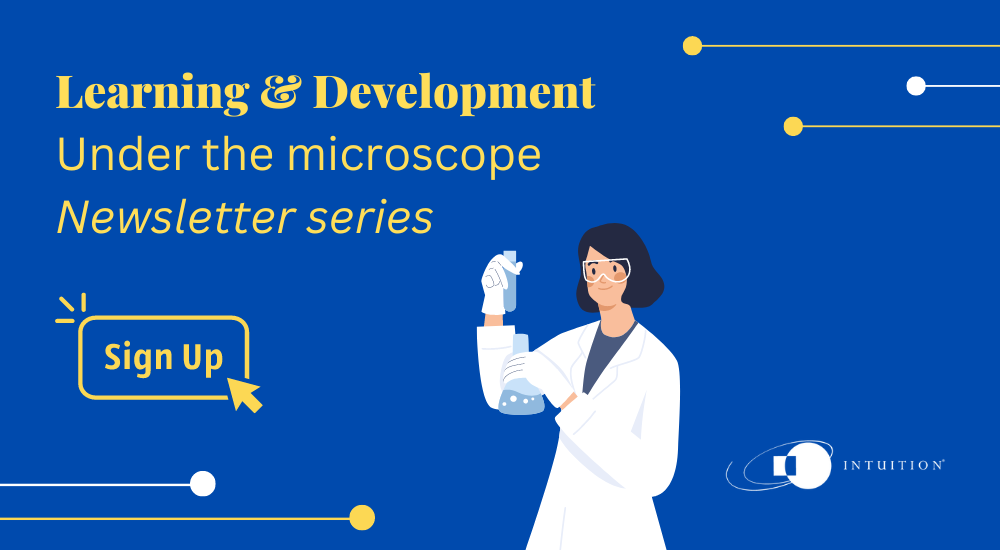Adaptive Learning: A System to Improve Your Corporate Compliance Program
In contrast to the traditional ‘one-size fits all’ learning approach, adaptive learning, also known as adaptive teaching, is the delivery of personalized learning experiences that cater to an individual’s specific needs by offering just-in-time feedback, routes, and resources.
If you’re looking to advance your corporate compliance program, making it a more effective, used, and transferrable initiative in your organization, consider this innovative learning system.
Related webinar: Life Sciences: Compliance Training Considerations and Trends
How Does Adaptive Learning Work?
Adaptive learning technology aspires to replicate and assist the abilities of in-person educators in order to give the most effective possible learning experience for each and every student. Adaptive learning can be scaled up to tens, hundreds, or thousands of students at once.
Designed Adaptivity
Designed adaptivity is an adaptivity strategy in which a teacher creates a specific teaching sequence to steer their students toward the completion of their desired learning goal. They are in charge of how the lesson modifies feedback and learning content sequences. Adaptations can be triggered by several elements known as adaptivity factors.
This “If THIS, then THAT” method to adaptivity uses an expert-model approach to instruct technology how to behave in certain scenarios. It may be used to give remediation, provide advanced knowledge with high-achieving students, persuade people who are rushing through screens to slow down, and more.
This provides the instructor additional power and control over the learning environment.
Algorithmic Adaptivity
This is an adaptivity approach in which one or more algorithms respond to the questions below:
- What does the learner’s ‘knowledge’ consist of?
- What should be the learner’s next experience?
The algorithm will choose the appropriate material at the right time for students as they learn based on their responses.
Bayesian Knowledge Tracing (BKT) is a common algorithm for estimating the pace at which learning happens. Item Response Theory (IRT), created in the discipline of psychometrics to represent a learner’s interaction with discrete stimuli, is another well-known framework.
Related article: How to Leverage Data Within Your Corporate Compliance Program

Which Learning Factors Can be Adapted?
Learner information/profile, habits, and performance benchmarks can all be mobilized to customize an individual’s learning experience.
Related article: Compliance Modernization and the Role of Digital Training Initiatives
Performance
Was the solution given correct or incorrect? What is the learner’s overall performance throughout a sequence of tasks/lessons?
Time/Behavior
How long did it take the student to finish the task?
Input
Learners can communicate their level of confidence in the subject, content type choices, or personal data to influence what happens next.

How is a Lesson Adapted?
In response to the learners’ performance, the lesson can be adjusted in several ways.
Feedback in Real-Time
This is when appropriate assistance is provided when it is needed most, such as tips based on shown misunderstandings (as though they’re getting real help from a tutor).
Differentiated Learning Routes
Provide different learning sequences to each student, such as extra support for a specific idea before moving on to the next topic, fast-tracking advanced learners, or allowing students to choose what they want to study next.
What are the Benefits of Adaptive Learning?
In the future, class numbers are unlikely to get smaller, and teachers are unlikely to be able to accompany every struggling student through each difficult subject — which is where adaptive technology comes in.
Instructors and learning designers can develop engaging, tailored learning experiences that cater to a variety of learning styles, ensuring that at-risk and advanced students receive the attention they need.
Adaptive learning can be used to offer introductory materials, pre-work in the classroom, remedial classes, case studies, and explorations of new and old topics.
When used with care and devotion, adaptive learning technology increases an instructor’s ability to enhance learning outcomes for each individual student.
Conclusion
In conclusion, as you look to innovate your in-house compliance program, you will likely assess several innovative techniques you can apply to make the training more effective and transferable to your teams’ working day.
Adaptive learning is one of the industry’s more interesting emerging areas and as you look to create a comprehensive compliance program, it should be placed firmly at the forefront of your mind.


